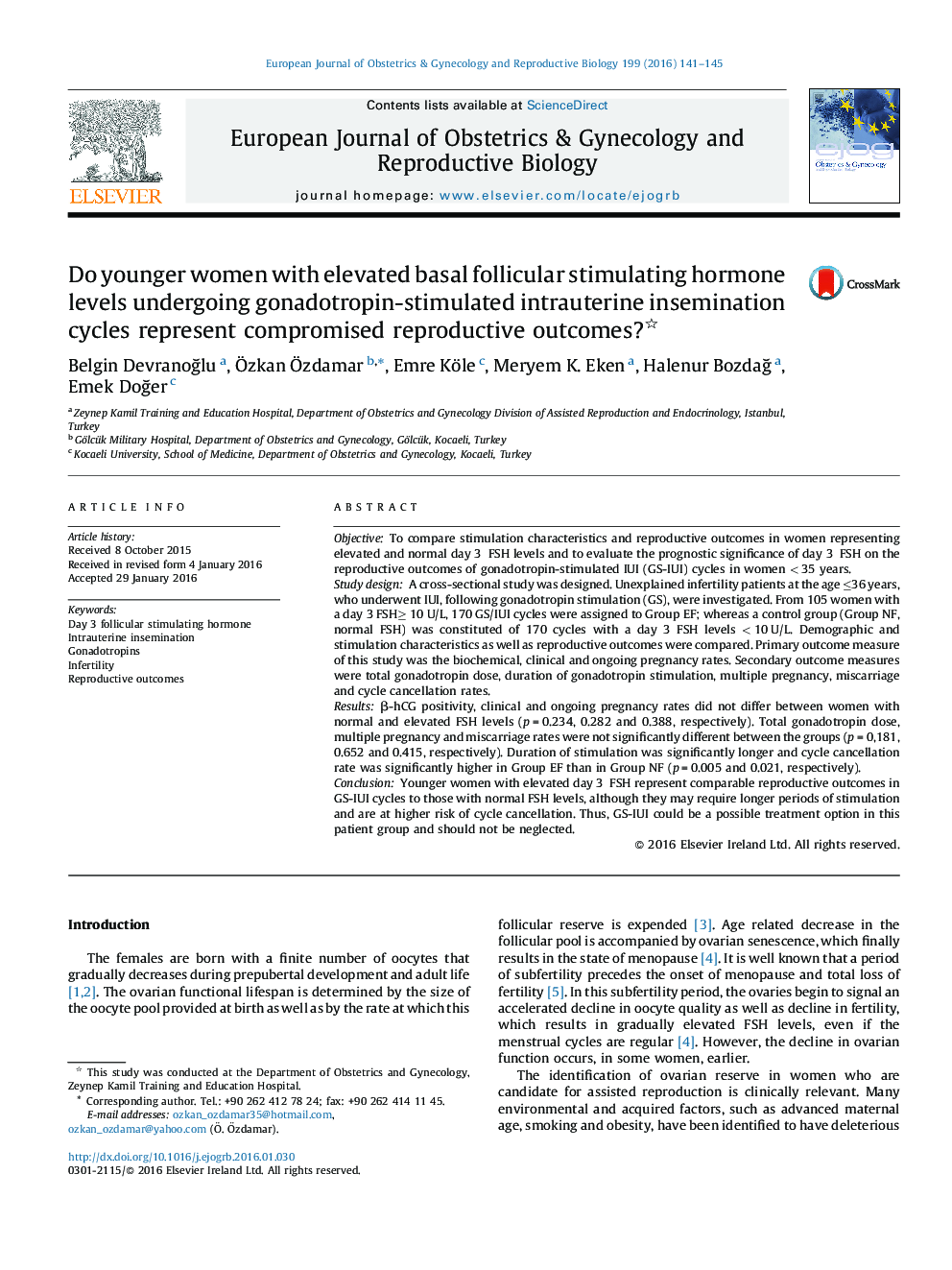| کد مقاله | کد نشریه | سال انتشار | مقاله انگلیسی | نسخه تمام متن |
|---|---|---|---|---|
| 3919504 | 1599782 | 2016 | 5 صفحه PDF | دانلود رایگان |
ObjectiveTo compare stimulation characteristics and reproductive outcomes in women representing elevated and normal day 3 FSH levels and to evaluate the prognostic significance of day 3 FSH on the reproductive outcomes of gonadotropin-stimulated IUI (GS-IUI) cycles in women < 35 years.Study designA cross-sectional study was designed. Unexplained infertility patients at the age ≤36 years, who underwent IUI, following gonadotropin stimulation (GS), were investigated. From 105 women with a day 3 FSH≥ 10 U/L, 170 GS/IUI cycles were assigned to Group EF; whereas a control group (Group NF, normal FSH) was constituted of 170 cycles with a day 3 FSH levels < 10 U/L. Demographic and stimulation characteristics as well as reproductive outcomes were compared. Primary outcome measure of this study was the biochemical, clinical and ongoing pregnancy rates. Secondary outcome measures were total gonadotropin dose, duration of gonadotropin stimulation, multiple pregnancy, miscarriage and cycle cancellation rates.Resultsβ-hCG positivity, clinical and ongoing pregnancy rates did not differ between women with normal and elevated FSH levels (p = 0.234, 0.282 and 0.388, respectively). Total gonadotropin dose, multiple pregnancy and miscarriage rates were not significantly different between the groups (p = 0,181, 0.652 and 0.415, respectively). Duration of stimulation was significantly longer and cycle cancellation rate was significantly higher in Group EF than in Group NF (p = 0.005 and 0.021, respectively).ConclusionYounger women with elevated day 3 FSH represent comparable reproductive outcomes in GS-IUI cycles to those with normal FSH levels, although they may require longer periods of stimulation and are at higher risk of cycle cancellation. Thus, GS-IUI could be a possible treatment option in this patient group and should not be neglected.
Journal: European Journal of Obstetrics & Gynecology and Reproductive Biology - Volume 199, April 2016, Pages 141–145
